Food tours, culinary festivals, #foodstagram – our generation seems to be obsessed with food. Between billions of social media posts displaying meticulously composed plates and perfectly marbled lattes, the next Netflix original series about extraordinary cuisine, and millions of sites with recommendations for “the best” vegan, gluten-free, and rainbow-colored food, we can’t get enough of the aesthetic that comes with enjoying our meals.
But the global food industry has been in desperate need of innovation. According to the UN, an estimated 124 million people in 51 countries are currently facing food insecurity, while one-third of all produced food is still going to waste. Not to mention the environmental impact as farmers grapple with increasingly harsh weather conditions, pests, pollutants and soil depletion in the face of ever-growing product demand.
With a world population that is set to reach close to 10 billion by 2050, the big question remains: Will we be able to produce enough food?
SEE ALSO: Israel’s Unique Successes in AgTech May Help Stem Looming World Food Crisis
Some Israeli startups have been trying to answer this question. And they appear have found common ground under one roof in Tel Aviv: The Kitchen FoodTech Hub. The Kitchen is Israel’s first and, currently, only technology incubator focused on food and beverages and is a seed investor in related startups. It was developed in collaboration with the Strauss Group, one of Israel’s biggest food product manufacturers company that is competing on a global scale. After winning a tender issued by the Israel Innovation Authority for operating a tech incubator, the Strauss Group opened the doors of The Kitchen in Ashdod on January 1, 2015, in Ashdod.
The incubator accepts startups on a rolling basis, and its portfolio has grown to 12 companies with three more companies in various stages of in the approval process.
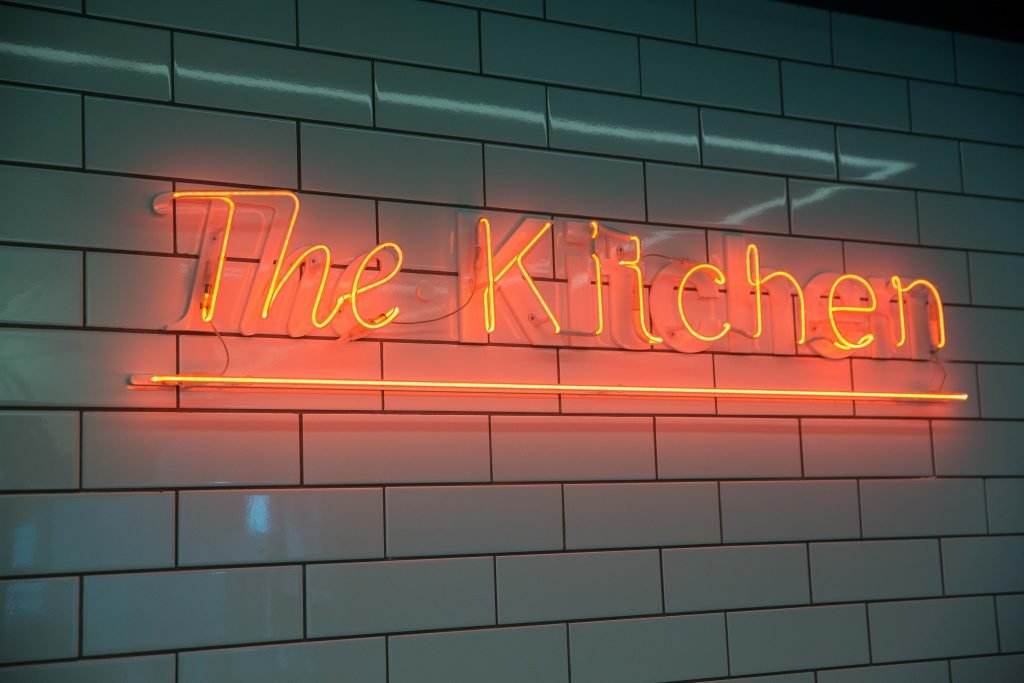
A startup will usually stay in the program for 18 months, but in specific cases that timeframe can be extended to 30 months, explains Amir Zaidman, Vice President of Business Development at The Kitchen. And the process is not easy.
“To date we have screened over 650 opportunities and decided to invest in less than 15,” Zaidman tells NoCamels. “We have an intimate knowledge of the needs of the food and beverage industry which allows us to be very selective and choose only the ventures that bring a unique solution to a burning market need.”
The selected startups also receive equity financing in the range of $600,000-$900,000 and close support on three different levels.
The equity financing part is simple, Zaidman tells NoCamels, as The Kitchen’s financing model is similar to that of a venture capitalist rather than that of an accelerator.
Then, on the first level, portfolio companies receive direct personal support in areas like technology, operations, business development, and marketing. On a second level, the startups gain access to Strauss, a fully integrated, large food company, its expertise and experience as well as facilities and factories. Lastly, portfolio companies are connected to The Kitchen’s network of international companies.
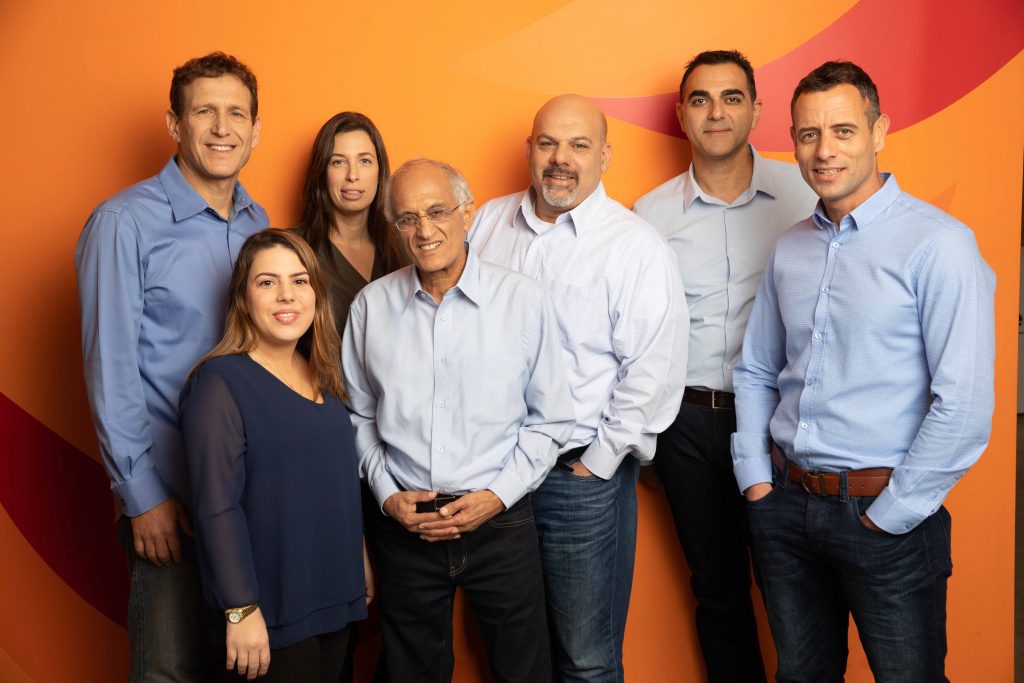
“Our close connections with the largest food companies in the world enable us to get a firsthand impression on the attractiveness of new innovations,” he says. Indeed, The Kitchen works with food and beverage giants such as PepsiCo, Danone, Mitsui in Japan and the international retailer Carrefour. It recently also entered a partnership with Mondelez International, an Illinois-based food and beverage multinational and the parent company of Oreo, Cadbury, and Toblerone among others, to develop opportunities in the snacking sector.
“This integrated support system and global network grant The Kitchen’s startups a range of opportunities for commercialization and access to international markets from the moment they are market ready,” Zaidman says.
This rigorousness appears to pay off. Some of The Kitchen’s portfolio companies launched products that made international headlines.
Aleph Farms unveiled the world’s first lab-grown, slaughter-free steak at the end of last year. Plant-based yogurts developed by the award-winning company Yofix are already successfully sold in Israel under the brand name ONLY. Other plant-based alternatives are being rolled out from Zero Egg, which developed a vegan substitute for – you guessed it – eggs. And Rilbite developed a minced meat alternative with an extremely short ingredients list.
And that’s by far not all.
Sign up for our free weekly newsletter
Subscribe“Two of The Kitchen’s companies, BactuSense and Inspecto, are making sure our food is safe and contaminant-free by providing rapid detection technologies,” Zaidman says. “And Amai Proteins is developing a zero-calorie natural sweetener, based on sweet proteins, to replace sugar and make our diet healthier.”
Meanwhile, Flying SpArk is developing protein sources that don’t rely on traditional livestock farming, and focus on using insects such as fruit fly larvae to meet protein needs.
In the beverage-related aisle, Better Juice has made it its mission to reduce the sugar content in natural fruit juices – as NoCamels reported earlier this year.
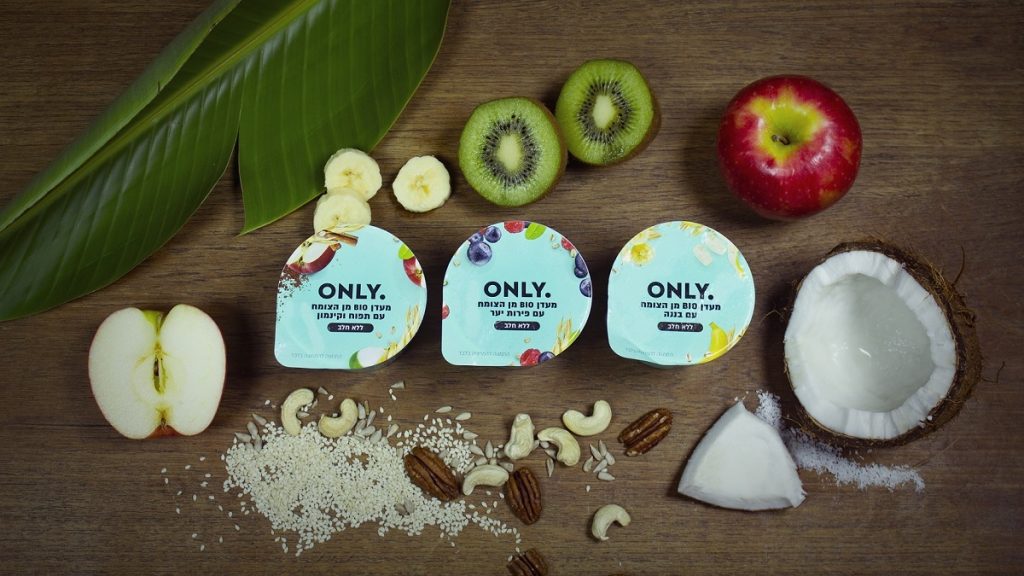
DLR (Deep Learning Robotics), another portfolio company, developed a controller that enables robots to replicate a human’s movement after observing them, which can then implemented in production lines.
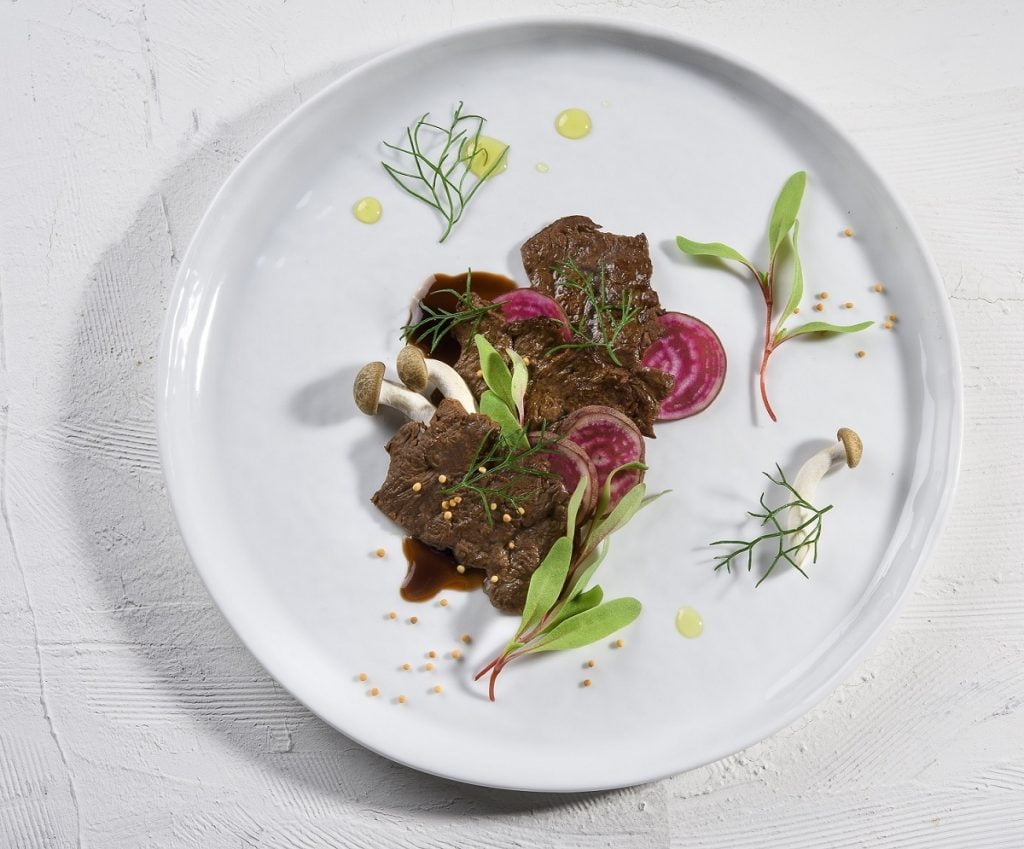
For foodies who are lacking inspiration, Myfavoreats is a SaaS-solution that customizes online recipes according to dietary restrictions. And to support safe food processing, which is a considerable cost factor in the food and beverages industry today, Bio-Fence is striving to create antimicrobial coatings and paints that destroy microorganisms upon contact.
Zaidman tells NoCamels that one of the biggest changes the food industry is facing right now is increased personalization. Many in the food and beverage industry have understood and are adjusting their strategies accordingly.
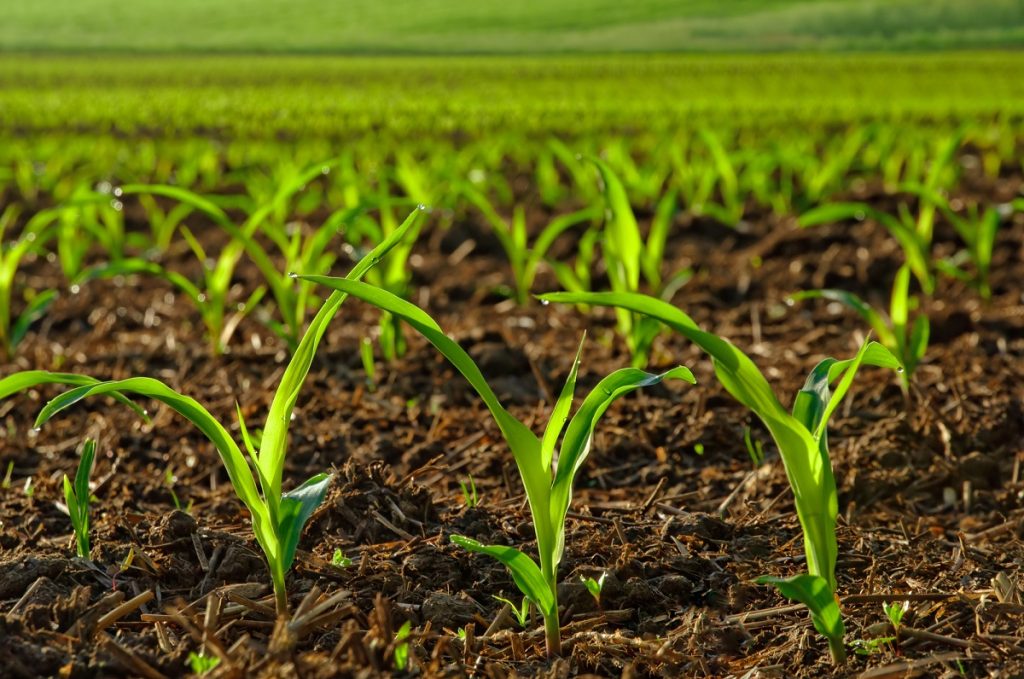
“Personalised nutrition allows greater choice and flexibility to consumers,” Sue Gatenby, senior director nutrition sciences at PepsiCo, told the site Just Food earlier this year. “We have seen growing trends that consumers seek to identify personally with products. That has led to the food and drink industry increasing its focus on providing consumers with the ability to customize and be involved in the creation of products that suit their lifestyles and needs.”
There is also increased awareness of healthy eating and diets as people are becoming increasingly conscious of what they want to consume.
Zaidman has a very clear vision for the future of the food industry: “We will know exactly what to eat based on our genome and microbiome, and it will taste great and make us feel happy and satisfied. We will only buy the food that we will consume, and very little food will be wasted. Food sources will change, and our protein consumption will rely much less on livestock and much more on plants, insects, and cells.”
In addition, he sees a future of natural and safe foods, free of pollutive plastics. “I strongly believe that the food tech entrepreneurs and startups of today can make this a reality,” he explains.
And there’s no better place for game-changing innovations than in Israel, Zaidman says.
SEE ALSO: Israeli Startup Jet Eat Looks To Replace Meat With 3D Printed Vegan Steaks
“Since its very early days, Israel only had itself to rely on in many areas. including food. Israel is a geopolitical island. This created the need to develop expertise in all areas of the food supply chain. When, in the early 50s, Israel had no access to rice, we invented a rice-like pasta that is now known across the world as Israeli Couscous (Ptitim),” he tells NoCamels.
“Innovation in agriculture and food are the basis of Israel’s survivability. Add to the mix the entrepreneurial spirit of the startup nation, and you get the perfect environment for the proliferation of food tech startups,” he adds.
Israel is currently home to some 750 startups in the food and agriculture tech industry.
Related posts

Israeli Medical Technologies That Could Change The World

Harnessing Our Own Bodies For Side Effect-Free Weight Loss

Missing Protein Could Unlock Treatment For Aggressive Lung Cancer


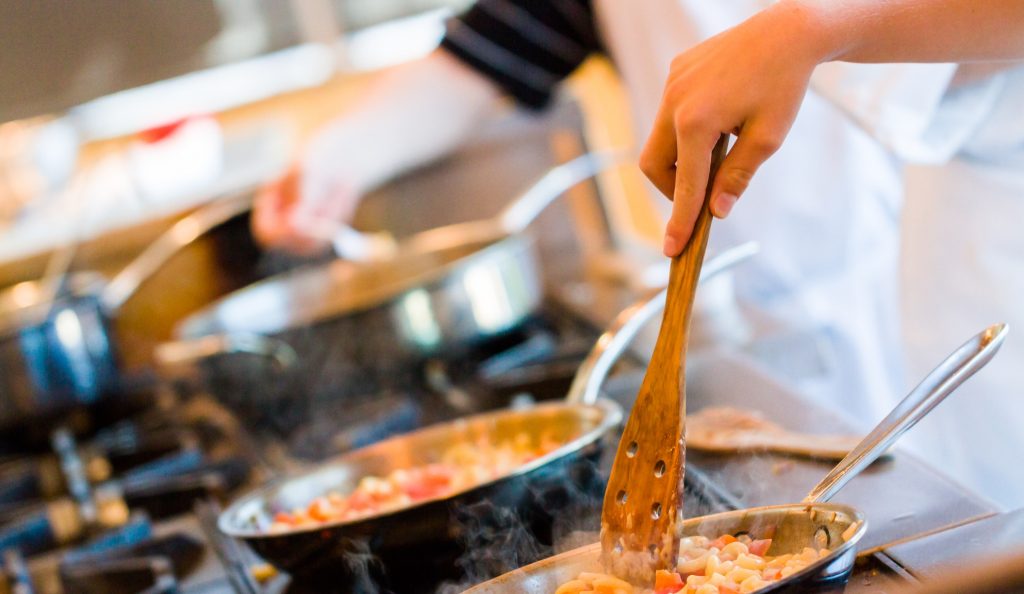

Facebook comments